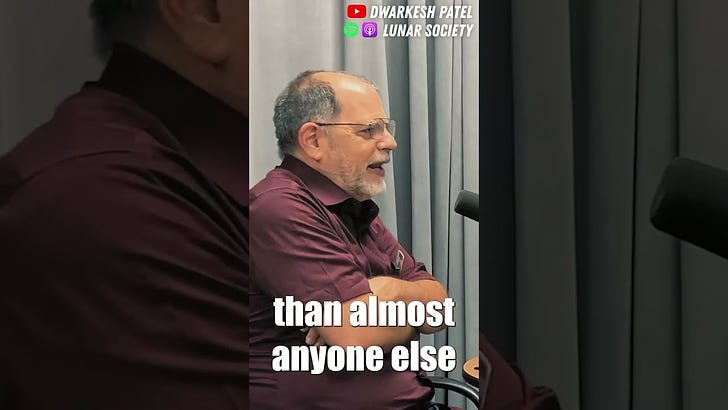On a recent Lunar Society podcast, Tyler Cowen tells Dwarkesh Patel his version of how we met. Here’s the clip:
I have similarly fond memories, though Tyler gets a few facts wrong. I wasn’t in high school when we met; in fact, I had just finished my B.A. And even though I had vaguely heard of Tyler’s work as early as 1990, when I did a summer school at the Cato Institute, I didn’t initially “seek him out.” Instead, we met when Tyler did one of the weekly talks for the Institute for Humane Studies summer interns program in 1993. Back in those days, IHS was in Fairfax, so GMU was only a short walk away.
At the weekly talk for we interns, I believe Tyler presented material from what eventually became his book, In Praise of Commercial Culture. Very engaging, but only afterwards did I discover that he’d just published a novel critique of anarcho-capitalism called “Law as a Public Good” in Economics and Philosophy. I quickly got my hands on it (not so easy in those days!) and soon wrote a detailed critique. Eventually, my critique turned into “Networks, Law, and the Paradox of Cooperation,” co-authored with Ed Stringham.
Despite my strong disagreement with his paper, Tyler gave me instant and massive encouragement. During my less-than-thrilling years in Princeton’s Ph.D. program, he was always quick to respond to my emails with insight and joy. Once I started working at GMU, he mentored me as no one else has before or since. Initially, he was a big believer in the quick, on-campus lunch. After a couple of years, though, Tyler became a staunch promoter of the hour-long, off-campus lunch. (“Why the change?,” I once asked. “There are multiple equilibria,” was his response). It is during those lunches that even today we continue our decades of intellectual conversation.
In the interview, Tyler describes me as an unusually constant human being. Looking back, I’d say the same about him. Yes, his specific views changed mightily. His 1993 reaction to my defense of anarcho-capitalism was roughly, “I sure wish you were right. It’s hard to give up on this noble dream.” Now the best thing I can imagine Tyler saying about anarcho-capitalism is that its illusions foster a counter-culture that’s become a valuable incubator for fruitful ideas like crypto-currency. Still, during the 29 years I’ve known Tyler, he’s been a contrarian among contrarians. He still loves learning obscure lore, then turning this lore against its orthodox keepers. His energy, too, has always astounded me. When I met him, he put virtually every minute into his academic publishing. Even his many hobbies - most notably the arts - were ultimately inputs into his scholarly work. Since then, as you may have noticed, Tyler’s branched out into blogging, textbook writing, popular science, interviewing, philanthropy, and of course leadership - both formal and informal. If anything, his total energy is higher than ever.
In hindsight, Tyler’s biggest influence on me was just teaching me how to write a paper. After four years of the Princeton Ph.D. program, I still didn’t internalize the norm that an academic paper is supposed to say something true that no human has ever said before. Now this norm is second nature; even my lowliest blog post must make an original point, if only in own my mind.
The one time in the last three decades that Tyler genuinely surprised me was during Covid. I wasn’t shocked that he verbally joined the crusade, but I was astounded that he personally sincerely worried and cared. I assumed he’d be a merry scofflaw like me, but how wrong I was. The good news is that he’s been back to his old normal for about a year and a half. Tyler, what a privilege it is to know you!
















What a wonderful tribute. We should all be so lucky.
His claim about what we learn in school may be plausible, but would argue that it doesn't justify forcing everyone to pay billions of dollars per year for it and that there are other more productive ways of achieving the same things.
Imagine walking up to someone and robbing them at gunpoint. They say "What the hell, man? Why are you doing this?" and you reply "I'm using the money to teach kids about the dating market. You're welcome." I'm not so sure that this would pass any rational person's common sense moral test let alone hold up in court.